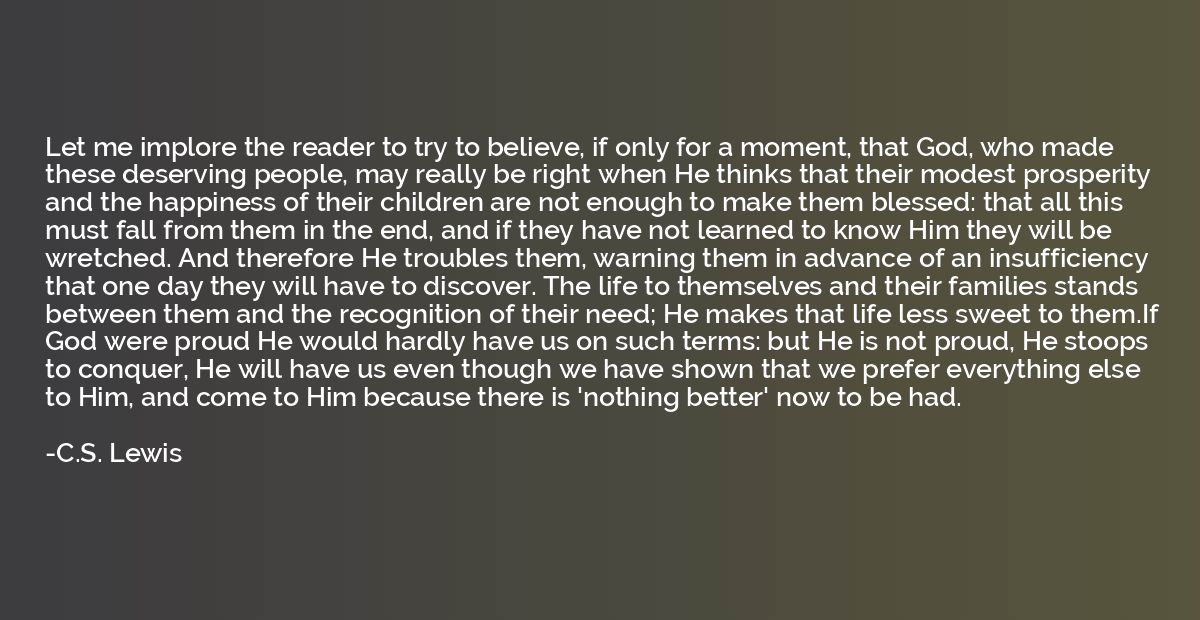Quote by C.S. Lewis
Let me implore the reader to try to believe, if only for a moment, that God, who made these deserving people, may really be right when He thinks that their modest prosperity and the happiness of their children are not enough to make them blessed: that all this must fall from them in the end, and if they have not learned to know Him they will be wretched. And therefore He troubles them, warning them in advance of an insufficiency that one day they will have to discover. The life to themselves and their families stands between them and the recognition of their need; He makes that life less sweet to them.If God were proud He would hardly have us on such terms: but He is not proud, He stoops to conquer, He will have us even though we have shown that we prefer everything else to Him, and come to Him because there is 'nothing better' now to be had.

Summary
This quote suggests that God may intentionally trouble individuals, disrupting their seemingly content lives, in order to guide them towards recognizing their need for Him. It implies that worldly prosperity and the happiness of one's children may not be enough for true happiness and blessings. Despite humanity's inclination to pursue other things, God humbly reaches out to all, even when there is nothing else seemingly worth pursuing.
Topics
Health
By C.S. Lewis














